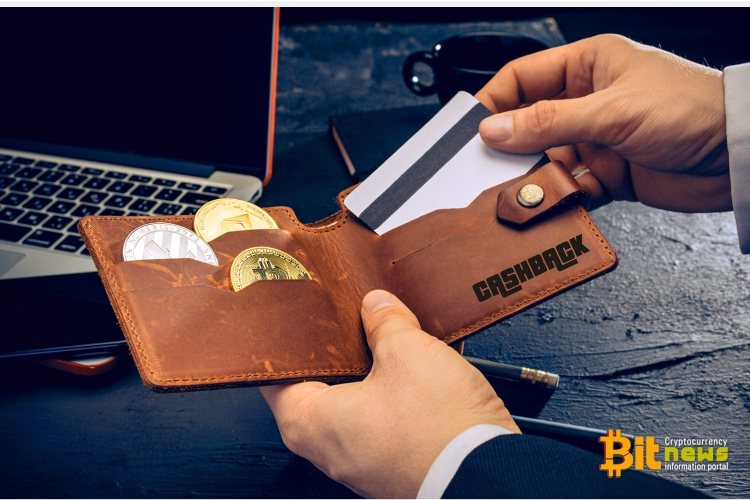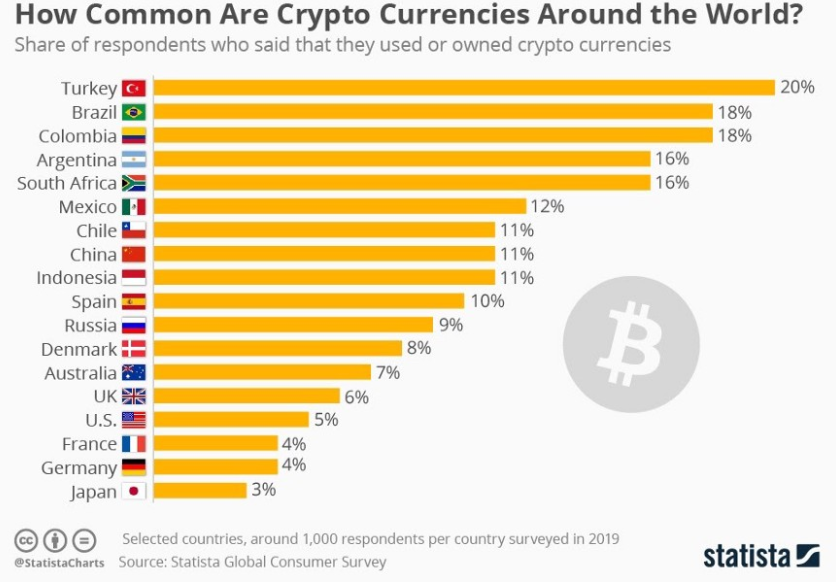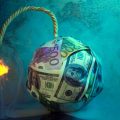
Satoshi Nakamoto, the mysterious creator of Bitcoin, once declared that he intended to “create a global currency,independent of banks and governments that depreciate their currencies. ”
Luke Nosek also made a similar statement.one of the co-founders of Paypal. Luke describes Paypal's original vision at the World Economic Forum entitled “Can Digital Currencies Build Trust in a Chaotic World?”.
Note that although Paypal has achieved great success, it has not implemented the original idea – create a global currency independent of the intervention of sovereign states or central banks.
Paypal agreed to centralization, whichrequired compliance with international money transfer laws. Thus, Paypal's promise was undermined by the phenomenon it had originally hoped to avoid: the government punishing Paypal for failing to follow international money laws, and Paypal blocking user accounts in order to further international cooperation.
Regardless of Paypal’s efforts, its access canbe closed by governments on a whim. For example, in 2016 Paypal had to suspend operations in Turkey due to a new law requiring the company to place data centers in the country (presumably for surveillance or censorship purposes). The closure probably affected tens of thousands of businesses and hundreds of thousands of customers.
Besides Turkey, list of other gaps on the mapPaypal's world domination is limited. Geopolitical danger zones or countries subject to US sanctions mainly include such “blind” Paypal zones: Cuba, Myanmar, Pakistan, Afghanistan, etc. Citizens of these countries suffer from extremely limited access to the global financial system.
US sanctions seek to isolate andto punish unscrupulous market participants in the international political system, especially corrupt dictators. However, the effectiveness of sanctions has a long history of mixed results.
Financial sanctions aimed at dictatorshipcan harm innocent citizens. An autocratic government, not sanctions, is a fundamental problem. According to the Human Rights Foundation, more than 50% of the world's population lives under an authoritarian regime.
If you are a citizen whose onlya crime is born under the rule of one of these dysfunctional, autocratic regimes, is there a possibility of digital payments to potentially take the place of Paypal? There is growing evidence that a solution to economic repression can be found in Bitcoin, a peer-to-peer electronic cash solution that does not require a trusted third party to approve (or censor) transactions.
Anyone can receive or sendBitcoin directly from places that have internet and wallet software, so Bitcoin's presence in authoritarian regions has increased. In September, the US reported that about 10,000 Cubans were using Bitcoin to overcome economic obstacles. From online shopping to hotel room rentals and mobile top-ups, Bitcoin appears to be simplifying payments for those without access to the traditional financial market.
Moreover, countries such as Turkey do notneed Paypal bans to effectively suppress their economic potential. Turkey's economy has long been plagued by government corruption and monetary inflation. Frivolous bans on innovative systems like Paypal are just one of Turkey's many economic problems. It is therefore not surprising that the country's citizens are meaningfully accepting the decentralized alternative:

So, there is evidence of the use of Bitcoinin almost all other countries where Paypal is restricted from serving: In May, the Central Bank of Myanmar said Bitcoin was being used as a digital payment for personal use or services. And in Pakistan, significant local Bitcoin trading occurs against the national currency, the rupee. Even in Afghanistan, cases of Bitcoin payments have been recorded.
Of course, Bitcoin is not a panacea.Cryptocurrency has serious UX, education, regulation, and volatility issues that prevent its use as a truly global monetary system. Hopefully some of these shortcomings will disappear as development improves. Despite this, today any citizen of the world can receive or send Bitcoin across borders using only an Internet connection and a Bitcoin wallet.
Can Paypal compete with Bitcoin?
Paypal’s current CEO, Dan Shulman, has expressed his belief that Bitcoin’s innovation is not a competitor to Paypal’s digital payments, saying:
“Until it becomes less volatile, it will not be the currency that is widely accepted by online merchants.”
As further evidence thatPaypal does not consider Bitcoin a competitive threat, Dan even claims that he currently owns Bitcoin. Peter Thiel, co-founder of Paypal, compares Bitcoin with digital gold.
Future development and geopolitics likelywill continue further, positioning Bitcoin as a storage system and/or a system for digital payments. While Bitcoin is able to fulfill Paypal's original vision.




